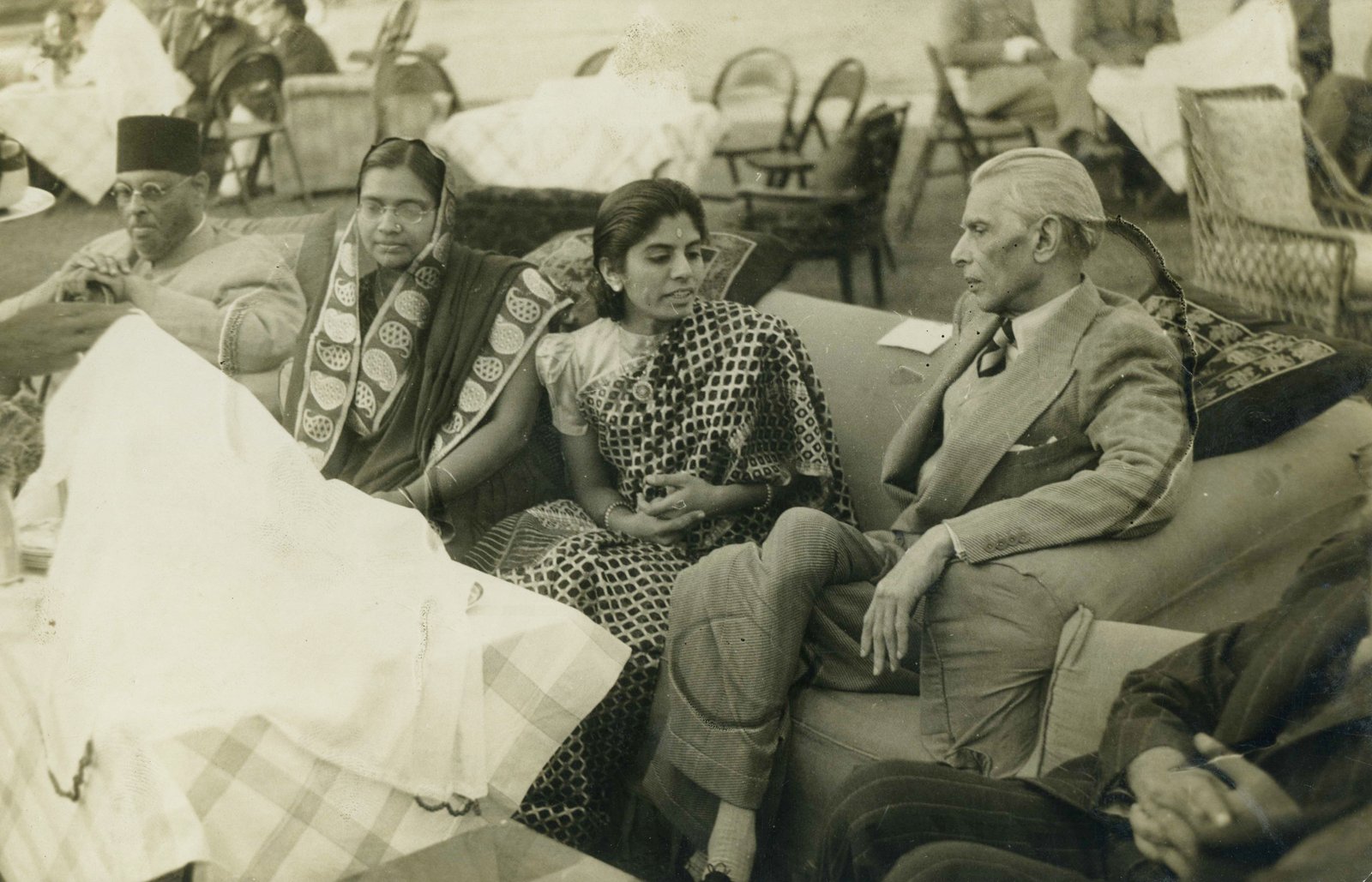
08 Jan The man who got more than he expected – Jinnah
Since the time I was a small child, I have heard about and seen photos of Jinnah at grand teas in our front lawn, sitting on sofas, immaculately dressed, talking either to my mother or my father Ramkrishna Dalmia. At these parties the British Who’s Who were present including Sir Claude Auchinleck, the Commander in Chief of the British Indian Army, and many whose faces I don’t recognize but doubtless historians would. Some of those show my mother in earnest conversation with Jinnah. Perhaps she was trying to persuade him to Partition.

All this was before I was born. India regained her freedom in 1947. I was born in 1949 in the very same house. So what I understand is what I heard from older relatives, senior functionaries of my father‘s business empire and above all, from my parents. This is my version. It’ll be difficult to prove. History is written by the victors. In this case, those who wanted immediate power on both sides. Jinnah, had he lived longer would have been a witness but he passed away a year after the creation of Pakistan. (He is rumoured to have said on his deathbed to his top confidante that this was the greatest mistake he had ever made. The state of Pakistan purportedly suppressed this because it questioned its raison d etre.) It certainly cost millions of lives of people who before the rabble-rousing had lived side by side by and large peacefully on both sides.
My father was steeped in the spirituality of the Vedas and the Upanishads. He spent several hours a day in studying philosophy (swadhyaya) and in meditating. He was a devout Hindu. He was traditional in his culture. In contrast, Jinnah was highly westernized and a Muslim demanding a separate nation built on religion. These two were good friends. Strange bedfellows, in the words of my brother. So much so that Jinnah was only willing to sell his beloved house on Aurangzeb Road, an architectural beauty both inside and outside, to his close friend. It presently is the residence of the Dutch Ambassador to India.

Jinnah was bargaining, negotiating for the maximum he could get but like the proponents of Brexit till the last didn’t really believe that he would get it. Had he been given enough power he would have compromised.
My father tried various formulae for compromise. He was good at the art of negotiations. He had built up his industrial empire from nothing. He was confident that he had brought Jinnah around. It could be done.
The power aspirants in the Indian polity, the would-be ruling elite at the time were inimical to my father. They were antagonized by his criticism of their putative economic policies. They were interested only in their own negotiations with Jinnah and the British. Those were clearly failing. They were not open to the idea of a businessman who had no locus standing in the matter, according to them, being heard. There was personal animus also. Dalmia was orthodox, not sophisticated. He would have to be taken care of once they got political power. His proposals were pre-emptorily and arrogantly dismissed.
The Great Power Games with their own weltanschauung and the prism of the Cold War saw a leftist Government in India as depriving the West of an important ally. Jinnah was happily willing to play that role.



No Comments